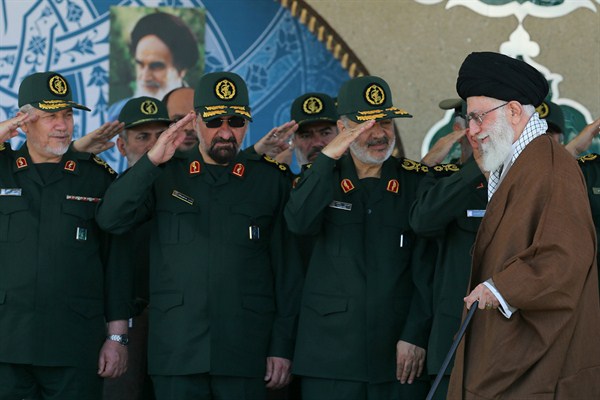Twice in the past two weeks, Iran has breached the limits on its nuclear program mandated by the 2015 international agreement aimed at preventing it from developing a nuclear weapon. First, it exceeded the maximum stockpiles of enriched uranium; then it began enriching to a higher level of purity, a potentially crucial step on the path to a bomb. Tehran didn’t act secretly or even quietly. It announced its plans and made sure the entire world knew it was steadily, if gradually, breaking out of the Joint Comprehensive Plan of Action, or JCPOA, the deal that President Donald Trump unilaterally withdrew the United States from more a year ago.
Trump has made a series of confrontational moves since then, most of all imposing harsh American sanctions despite Iran’s compliance with the deal at the time. But now, Iran is responding with visibly provocative actions, including its suspected sabotage of oil tankers in the Persian Gulf last month. Is Iran hoping that it might somehow benefit from a U.S. attack? Or is it hoping to trigger a beneficial diplomatic response? What is Tehran really trying to do?
Trump started tightening the screws on Iran shortly after taking office. He had been a ferocious critic of the deal that the Obama administration negotiated alongside the United Kingdom, France, Russia, China and Germany—the so-called P5+1. The agreement sharply limited Iran’s nuclear activities for about 15 years. In exchange, it lifted crippling economic sanctions, theoretically ushering in economic growth in Iran. But after Trump followed through on his threats to pull out of the deal, the U.S. ramped up its so-called maximum pressure campaign. It designated the powerful Islamic Revolutionary Guard Corps as a terrorist group and imposed sanctions on top Iranian officials, including Supreme Leader Ali Khamenei. More recently, the Trump administration started canceling waivers that allowed Iran to continue exporting oil and said it would review waivers allowing other countries to work on civilian nuclear projects in Iran.

